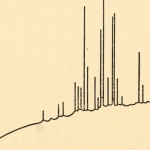2006
tobias c. van Veen reviews Paul D. Miller a.k.a. Dj Spooky that Subliminal Kid's MIT publication, Rhythm Science.
David Rothenberg writes of the affective and effective power of reverb.
Erik Davis discusses the relationship between electronic sound and environment.
James Riley on Jack Kerouac.
From event to non-event. Frank Seeburger deconstructs 9/11.
Marcus Boon explores the healing of traditional music.
Entering the 'cyberdebates' initiated by Nick Montfort, John Cayley, and Rita Raley, new media scholar Mark Marino proposes that we should analyze and explicate code as a text like any other, 'a sign system with its own rhetoric' and cultural embeddedness.
Andrew McMurry looks back on ten years of ecocriticism and identifies a "new physiocracy," whose exclusive interest in technology is no better than the exclusive valuation of property that typified physiocrats of the Nineteenth-Century.
Bruce Clarke reviews Stephan Harding's Animate Earth and James Lovelock's recent book on Gaia, the mother of all systems.
Linda Brigham reviews Katherine Hayles' My Mother was a Computer: Digital Subjects and Literary Texts.
Reviewing Andrew McMurry's Environmental Renaissance, Stephen Dougherty questions the systems approach to ecocriticism.
Joseph Tabbi introduces the thread and gathers prior essays by fiction writers on fiction writing.
Andrew McMurry introduces Katherine Acheson's review of Radiant Textuality, declaring that Acheson's illuminated critique exemplifies what's missing in McGann: the use of design not just to illustrate prose but also to extend a textual engagement.
Katherine Acheson's free-standing hypertext demonstrates how design can reinforce what's said, offer a counterpoint, and, occasionally, convey a critique of the critic.
In his review of Lee Rozelle's Ecosublime, Andrew McMurry offers a contrasting understanding of the sublime as a term describing our closure to nature, not our openness.
Rob Swigart asks why we keep hearing about a technological fix (dubious) and rarely about adaptation as a viable response to global warming.
Ted Pelton writes an in-depth account not just of the &Now Conference at Lake Forest College but of the state of experimental writers and small press publishing.
Tim Keane reviews David Matlin's Prisons: Inside the New America.
Sascha Pöhlmann reviews Lance Olsen's 2006 novel Nietzsche's Kisses.
